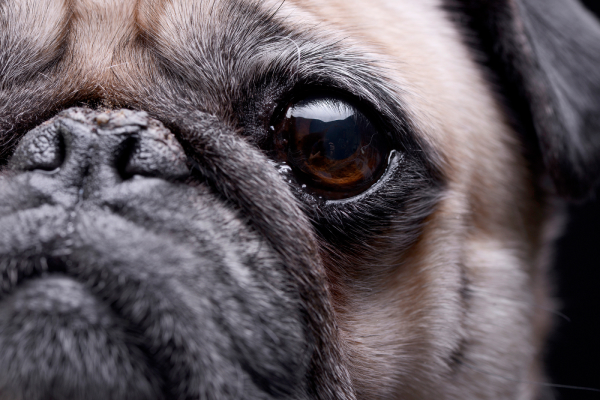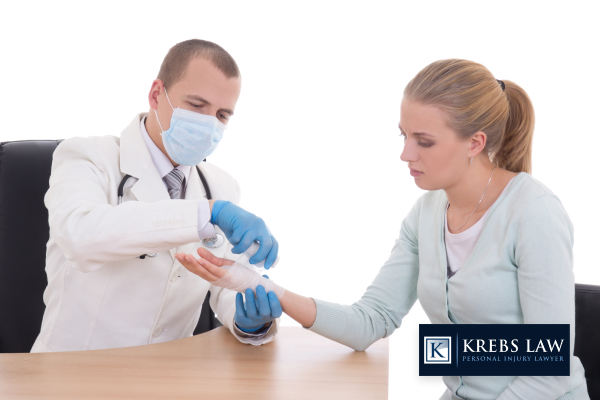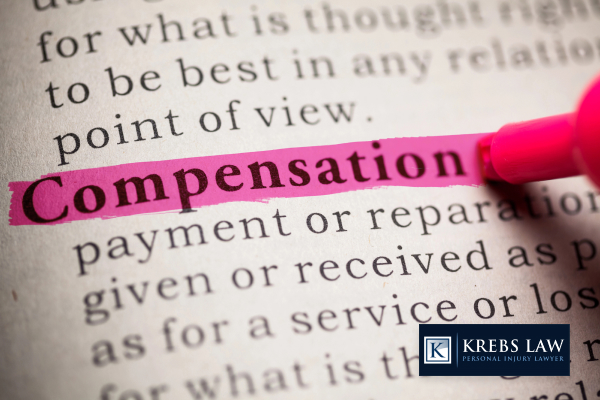This page was written, edited, reviewed & approved by JR Krebs following our comprehensive editorial guidelines. JR Krebs, the Founding Partner, has years of legal experience as a Personal Injury attorney. Our last modified date shows when this page was last reviewed.

Being attacked by a dog is a scary experience. Knowing how to react during the attack and what steps to take afterward is vital to prioritize your safety and legal rights.
At Krebs Law, we specialize in handling cases involving dog attacks and can guide you through securing compensation for your injuries. Knowing how to respond during and after the incident can significantly affect the outcome and your recovery if a dog has attacked you.
When you encounter an aggressive dog, your immediate response can be critical in minimizing harm. It's important to remain calm and remember key strategies to protect yourself.
Our team at Krebs Law is here to help you navigate the aftermath of a dog attack, including providing legal assistance to ensure that the dog's owner is held accountable and that you recover the compensation you deserve for your injuries and suffering. Even a trained dog can attack a person in the wrong situation.
If a dog attacks, stay calm and do not run away, as high energy can further excite the dog. Keep your hands and arms before you to protect your face and neck if the dog attempts to bite.
Speak in a firm, calm voice to command the dog to go away and avoid making eye contact, which can be seen as a challenge. A dog's body language can give important clues.
Try to remain standing and protect your head and neck. If the dog knocks you over, curl into a ball, protect your head, and cover your ears with your hands to protect the face and vital areas.
Pepper spray can sometimes help get a dangerous dog to back off. It's important to stay still until the dog loses interest and leaves or help arrives.
Staying calm can be challenging but it is vital when a dog attacks. Avoid screaming or running, as this can trigger the dog's instinct to chase and attack. Instead, maintain a quiet demeanor and move slowly. If you stand still, the dog may lose interest and stop attacking.
If possible, put an object between you and the attacking dog. This could be a purse, a jacket, or anything nearby that you can use to keep the dog at a distance. Keep the object moving to distract the dog. This tactic can give you time to move to a safer area slowly.
Protect your face, neck, and hands during a dog attack. These areas are particularly vulnerable to serious injuries.
If you fall to the ground, curl up into a fetal position, tuck your knees in, and use your arms and hands to protect your ears and neck. This position minimizes the surface area exposed to the dog.

Once the immediate threat is over, take steps to ensure your safety and prepare for potential legal actions.
After an attack, move to a safe location away from the dog. Check yourself for injuries, and remain calm to assess the situation. Safety should be your priority.
Even if the injuries seem minor, seek immediate medical attention after a dog attack. Dog bites can cause major infections and require professional medical treatment. Don't delay in seeing a doctor.
Dog bites can lead to severe infections such as rabies or tetanus. Immediate and thorough medical treatment is needed to clean and possibly suture the wound. Follow all medical advice and keep all documents related to your treatment.
Document all injuries and medical care received. Take photos of your injuries as soon as possible after the attack and during various stages of your healing. These records are vital for any legal claims.
Report the dog attack to local authorities. This creates a record of the attack, which is important if you decide to take legal action.
Contact local animal control to report the incident. They can investigate and take necessary actions to prevent future attacks, such as monitoring or removing the aggressive dog.
In addition to contracting local animal control, file a police report. This document is essential for legal proceedings as it provides a formal account of the incident from a law enforcement perspective.
Gather as much information as possible to support your case if you pursue legal action. Identify the dog and its owner. Knowing the owner is essential for filing a claim, as the owner is typically responsible for the dog's actions.
If there were any witnesses to the attack, collect their statements and contact information. Witnesses can share an objective account of the incident, supporting your claim.
Take pictures of your injuries, the site of the attack, and, if possible, the dog. Photographic evidence can be compelling in proving the severity and circumstances of the attack.

After a dog attack, see a doctor for comprehensive treatment. Not only does this ensure your physical recovery, but medical records also play a critical role in legal proceedings. A thorough medical examination documents the extent of your injuries and forms the basis for any compensation claims.
Continued medical care may be needed, depending on the severity of your injuries. Follow all medical advice, attend follow-up appointments, and keep records of all treatments and discussions with healthcare providers.
These documents are essential for detailing the repercussions of the injuries on your life. A professional dog trainer can work with dangerous dogs to prevent future attacks from aggressive dogs.
Awareness of the legal implications of a dog attack is crucial for protecting your rights and ensuring you receive adequate compensation. In many places, dog owners are held liable if their dog attacks someone, especially if the dog was known to be dangerous or if the attack occurred due to negligence in controlling the pet.
To file a dog bite claim, you must gather all the evidence, including medical records, photos, and witness statements. Then, consult a qualified dog bite lawyer who can advise you on the best course of action and represent you in all legal proceedings.
Start by gathering all the documentation related to the attack. This includes medical records, photos of your injuries, and correspondence with authorities or the dog owner.
Consult with a lawyer who specializes in dog bite cases. They can provide you with knowledge of your legal rights and the potential outcomes of your case.
Your lawyer will negotiate with the dog owner's insurance company to reach a settlement that covers all your expenses and compensation for your injuries. Your lawyer will prepare to take the case to court if a settlement cannot be reached.
If necessary, your case may go to court, where a judge or jury will decide on the compensation you're entitled to based on the evidence presented.

Compensation for dog attack victims can include medical expenses, lost wages if you could not work, pain and suffering, and sometimes punitive damages. The exact nature of the compensation will depend on the case's specifics and the extent of the injuries caused by the other dog.
The amount of compensation is determined based on the costs incurred from the attack and its effects on the victim's life. These can include immediate medical costs and long-term care expenses.
Several factors influence the amount of compensation, including the injuries' severity, the attack's circumstances, and the insurance policies in place.

If you or a loved one has been the victim of a dog attack, Krebs Law can help. Our experienced Tuscaloosa dog bite lawyers are ready to help you understand your rights and guide you through the process of securing the compensation you deserve.
While many dogs are great around people, some are dangerous. Dangerous dogs can exhibit aggressive behavior, even toward other dogs or stray dogs. Contact us to schedule a free consultation if you have been injured in a dog attack.


"*" indicates required fields

"*" indicates required fields